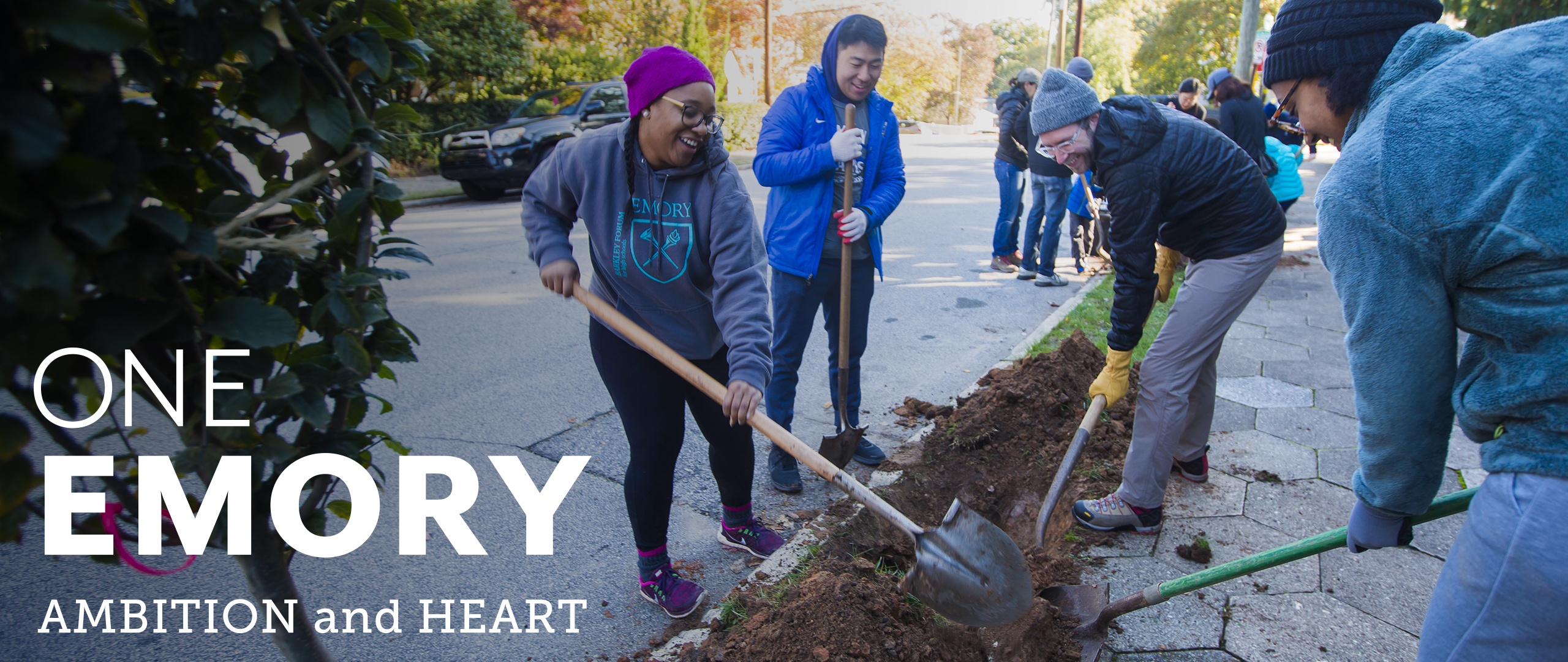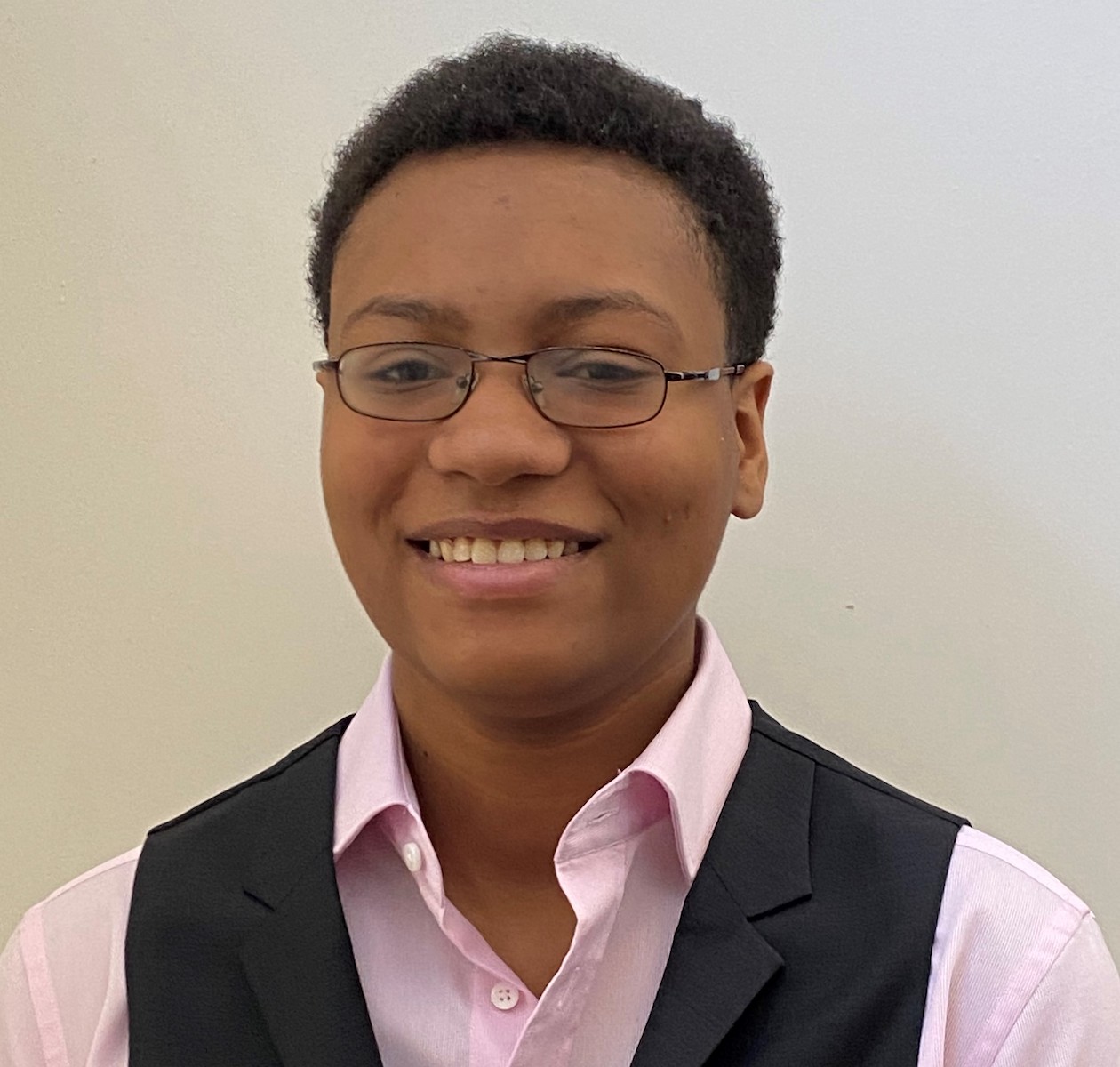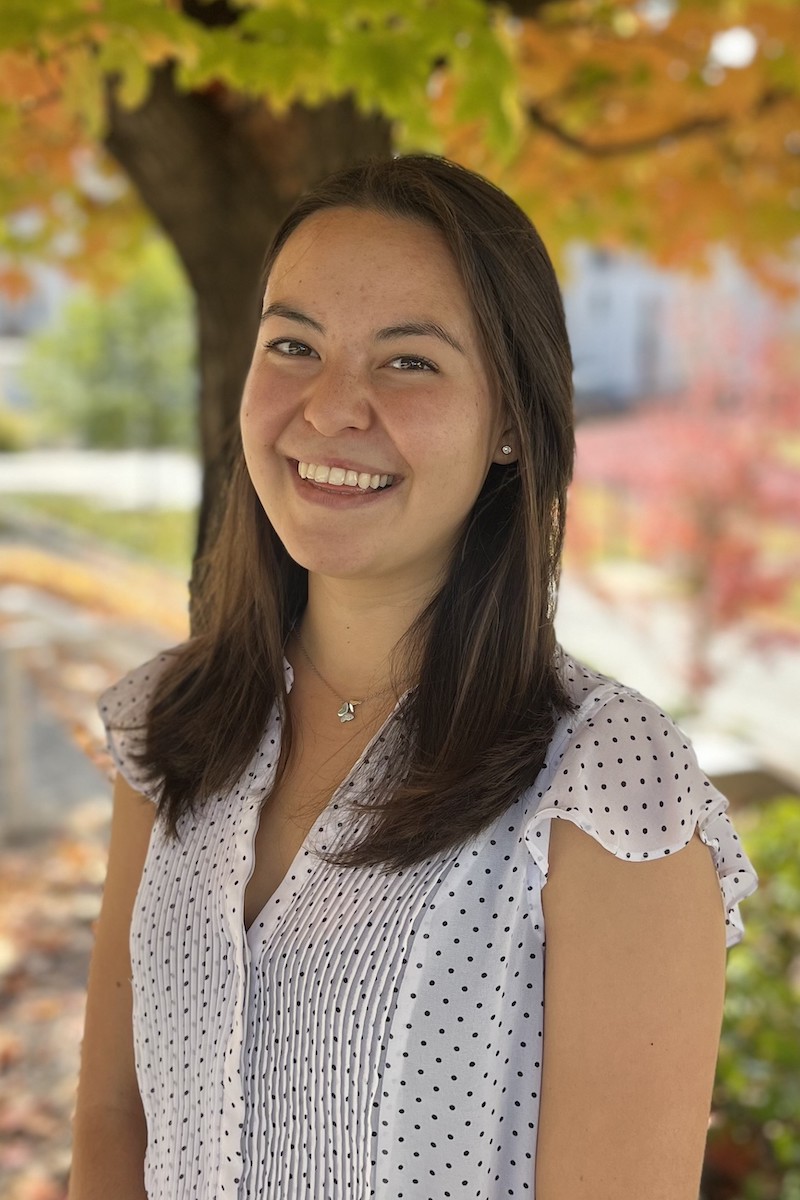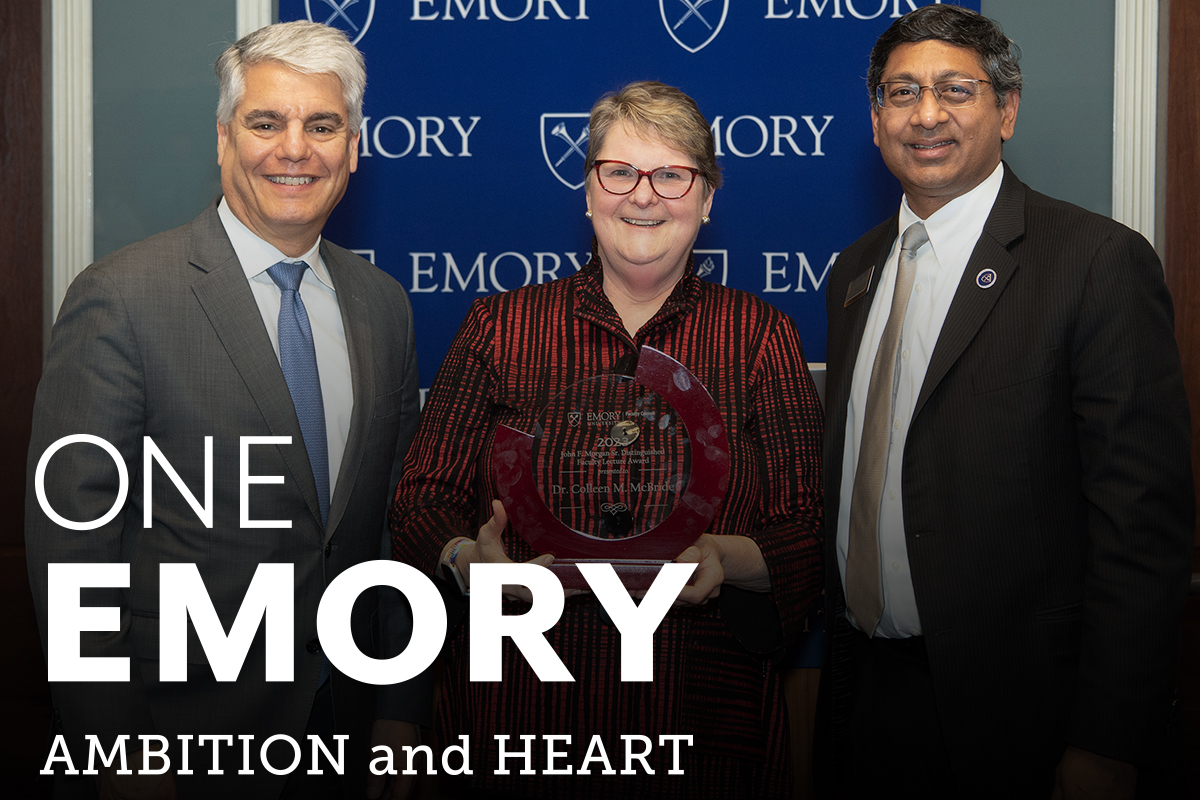
Emory + Atlanta: Rich History, Shared Future: ‘Building capacity for communities’
By Kelundra Smith March 30, 2023Each week, Emory Report is featuring one of the six focus areas of One Emory: Ambition and Heart, the reimagined strategic framework announced by President Fenves during the Feb. 7 Charter Week gathering.
Emory is a global research university, but we also have a responsibility to Atlanta, DeKalb County and the entire metro region.
In introducing the renewed One Emory strategic framework, President Gregory L. Fenves emphasized that Emory and Atlanta are inextricably connected. He encouraged faculty, staff and students to continue to find ways to reach beyond the Emory campus and into the community.
There are numerous programs, old and new, that demonstrate Emory’s commitment to serving Atlanta. Fenves highlighted the following priorities in his speech:
- Collaborate on new projects, such as the partnership with Midtown Alliance on their artist-in-residence program where Emory is providing studio space in storefronts near Emory University Hospital Midtown.
- Use Emory OPEN to seek engagement opportunities, coordinate activities and track how Emory is serving our communities.
- To shape Emory’s role in Atlanta, Fenves encouraged community members to:
- Expand on the accomplishments of the students he met in the Center for Civic and Community Engagement who are “building capacity for communities in Atlanta as well as the efforts of so many faculty and staff who are contributing to ambitious projects across the city.”
- Strengthen partnerships with the Atlanta University Center (AUC) by enhancing pathways to graduate school here at Emory for AUC graduates. At Goizueta Business School, the Rosemary and John Brown family generously established a $5 million scholarship endowment for Spelman College alumnae as well as graduates of Agnes Scott College to increase graduate business enrollment for women.
- Invest in wealth-creation programs, leveraging institutional resources to spark economic mobility. This will build on efforts that are already underway, including Emory’s participation as a founding member of ATL Action for Racial Equity, an initiative led by the Metro Atlanta Chamber. This initiative has inspired and united efforts at Emory, including:
- Making supplier diversity a priority when procuring goods and services;
- Expanding proven programs such as Start:ME, which fosters entrepreneurship in local communities of color and was bolstered by a recent $1 million gift from Truist Foundation; and
- Continuing the success of programs such as the Community Building and Social Change Fellows, the Emory Votes Initiative, Volunteer Emory, and the Atlanta Urban Debate League, as well as programs that enliven the arts and cultural enrichment.
“I am impressed by the breadth of engagement of Emory faculty, students and staff in the Atlanta community," Fenves concluded. “Please keep it up!”
Emory + Atlanta: 3 questions with Elysia Tillman of the Barkley Forum and Atlanta Urban Debate League
Elysia Tillman, Melissa Maxcy Wade Debate and Dialogue Specialist for the Atlanta Urban Debate League 
Tillman actively competed with AUDL and in national competitions through high school. When they went to college at Vanderbilt University, they volunteered as an instructor for younger students during the summer. When COVID-19 hit, they held virtual site visits with students and coaches to help them prepare for local competitions. Now, Tillman has come full circle as a full-time staff member with AUDL.
AUDL was founded in 1985 as a partnership between Atlanta Public Schools and Emory’s Barkley Forum to teach debate skills to kids. The partnership gives hundreds of students from elementary, middle and high schools across the state the chance to participate in debate, which typically is an expensive intellectual sport. According to their website, 90% of student participants graduate from high school and 75% matriculate to college.
Here, Tillman discusses what debate has meant to them over the years and how debate can help students process difficult life events.
Q: What value do you believe debate has brought to your life?
I was a shy kid, so it helped me make a lot of friends; I still talk to people who were in my debate club now. Debate is the reason my debate partner from 10th-12th grade went from being my worstie to my bestie. We competed so much that eventually we became friends. It also helped me process events happening in the world around me.
I remember when my debate club started participating in open debate, our coach asked us if we wanted to talk about race. That was around the time Trayvon Martin and Mike Brown were killed. Debate helped me look at the systemic issues surrounding their murders and think about solutions. It gave me a place to put my sadness and frustration. It’s hard to imagine what my high school experience would have been like if I had not zeroed in on those things.
Q: Now that you’re the one going to schools and training coaches and volunteers, what do you hope you’re imparting to them?
I want them to feel empowered to look at the world around them and have faith in their own critical-thinking skills. A lot of kids aren’t confident in what they say even if they’re right. It’s about getting them to realize that they have valuable thoughts about the world. Just because they’re students and they’re not experts, they still have valuable thoughts. The debate topics are often about social issues or world events— for example, next year’s topic is about income inequality.
I hope they get invested in what they are learning through debate. I hope that no matter what level of debate they’re in, they are more confident in themselves and aware of the world around them.
Q: Why do you believe it is important for Emory students to be involved with organizations such as AUDL?
It’s easy for any college student to stay in their bubble and never reach out. Considering how many resources Emory has, it’s a nice thing to invest in the education of K-12 students, whether it’s the university providing money or someone becoming a judge. I have seen students go from being resistant to mentoring their peers and taking on other types of leadership roles in their schools.
I don’t know what my life would look like without the AUDL. Emory students came to my school, and it means a lot. Any involvement, no matter how small, makes a difference.
Emory + Atlanta: 3 questions with Clare McCarthy, co-president, Alternative Breaks and co-founder, Emory Climate Coalition
Clare McCarthy, co-president of Alternative Breaks and president of Emory Climate Reality Project
As a 2021 Community Building and Social Change (CBSC) Fellow, she and other members of her cohort worked with nonprofit organizations in the Edgewood community to strategize about how to better serve residents. She is the co-president of Alternative Breaks, a Volunteer Emory program that allows Emory students to spend their spring and fall breaks volunteering across the Southeast. Because of her CBSC work, she was offered a position as the program assistant for Georgia Beloved Naturalist, a program run through Georgia Audubon which aims to connect people from underrepresented groups with educational and career opportunities related to the environment.
In addition, McCarthy recently served as one of Emory’s student delegates at COP27, the annual United Nations climate change conference, where she interviewed grassroots activists about global efforts to build community resilience to climate impacts.
With her mission in mind, McCarthy is enrolled in the Rollins School of Public Health dual-degree program, where she will earn her master’s degree in environmental health in 2024. Here, she talks about her passions for climate change and community engagement and how her time at Emory has changed her perspective on one of the world’s most urgent issues.
Q: When did you become interested in environmental science and justice?
Growing up, I loved being outside. I was fortunate to live in a house with a huge backyard with a patch of forest behind it. My sister and I were always out there, exploring and imagining fairytales. I became interested in environmental issues with a social justice lens when I participated in a summer program at the University of Pittsburgh called the Governor’s School for Global and International Studies.
One of the topics we learned about during the program was climate change. I learned that climate change is a disproportionate issue: countries that release the least greenhouse gases are suffering the worst consequences of climate change. America contributes significantly to greenhouse gas emissions, but I wasn’t feeling direct impacts in my own life, and I felt deeply guilty. At Emory, I have been able to channel my guilt into more productive action.
Q: What have Emory programs, such as CBSC, taught you about community justice work?
My CBSC cohort was matched with three nonprofit organizations: Moving in the Spirit, which provides dance classes for kids; the Wylde Center, which among other things helps create community gardens around Atlanta; and Whitefoord, which provides health care services. We conducted a community survey to assess the existing strengths of the neighborhood and the needs of the residents.
Through focus groups and interviews, we delivered a report to our partners about how they could better address community needs. During that process, I learned about the complex nature of community building work and how much flexibility is required to be successful. We started the project with a structured timeline for deadlines and deliverables, but a couple of weeks in, we received some pushback from an important community leader. We had to learn how to manage our community relationships with humility and empathy, adapt our plan and remain respectful and communicative throughout the process.
Q: How has your time at Emory made you see your place in the world differently?
Emory has made me realize I have more power and agency than I thought. When I co-founded the Emory Climate Coalition, I had no history of activism. I had only been to one protest. Being here has taught me that if there’s a change in the world you want to make, you don’t have to be an expert if you have the passion and the right people helping you along the way.
On the other hand, I also have continued to recognize how much I don’t know about the world. At Emory, I’ve learned something from every single person I’ve met. I look forward to continuing to learn and expand my worldview during my final year here.






